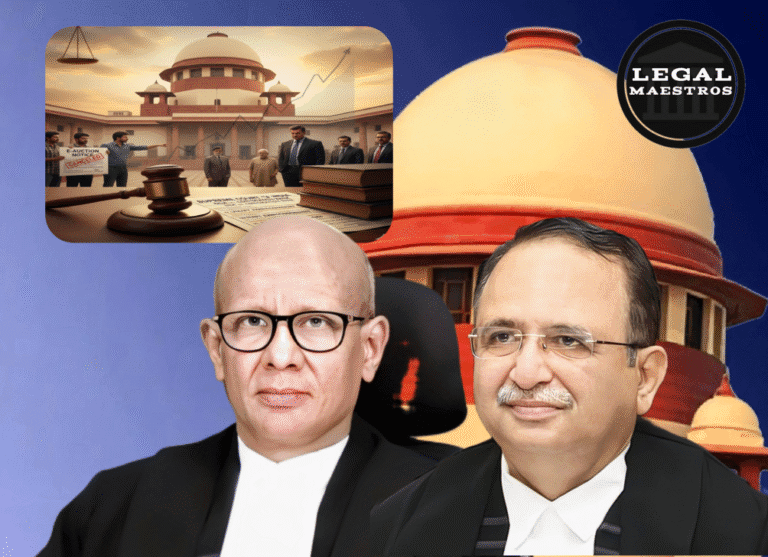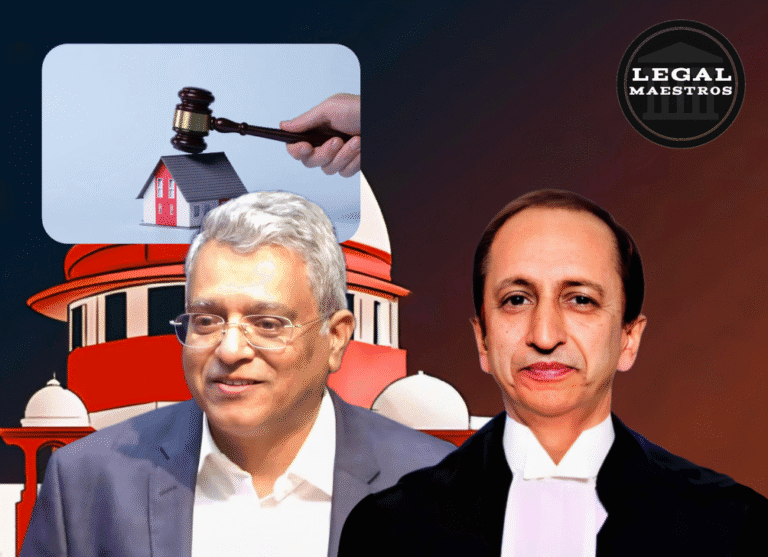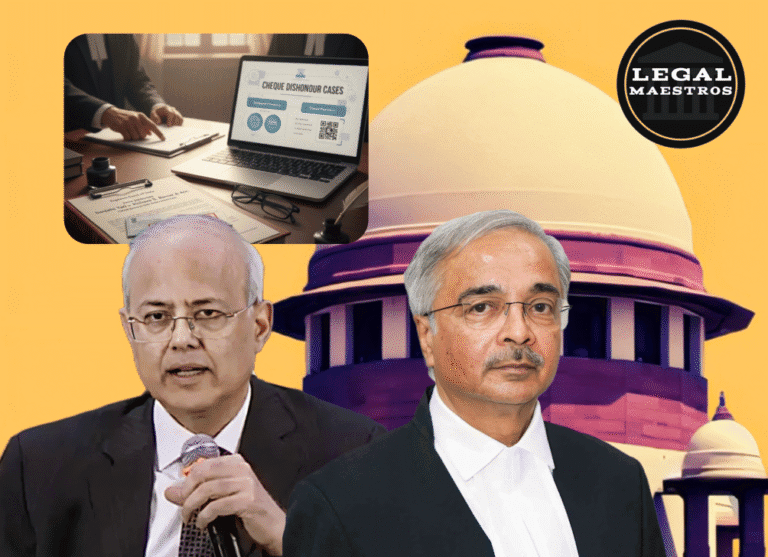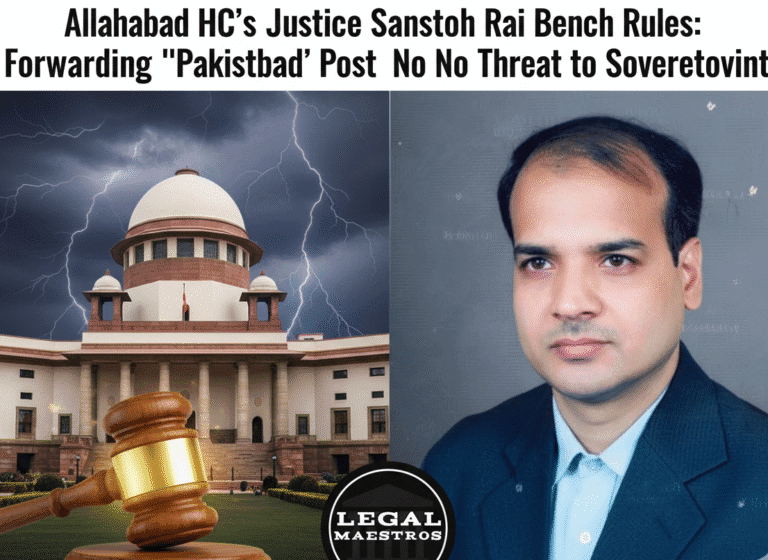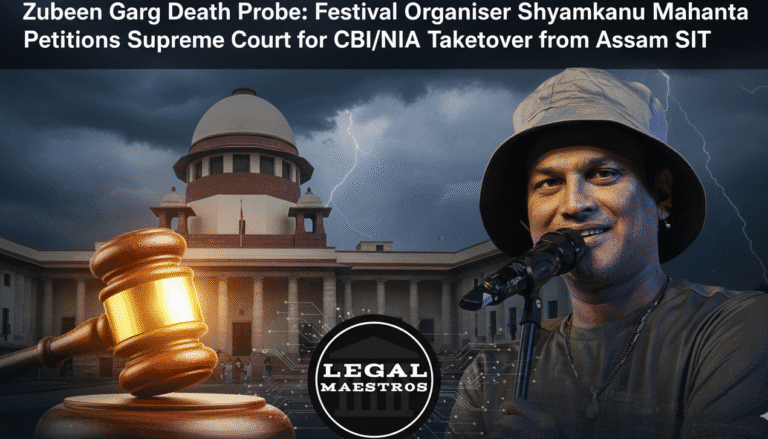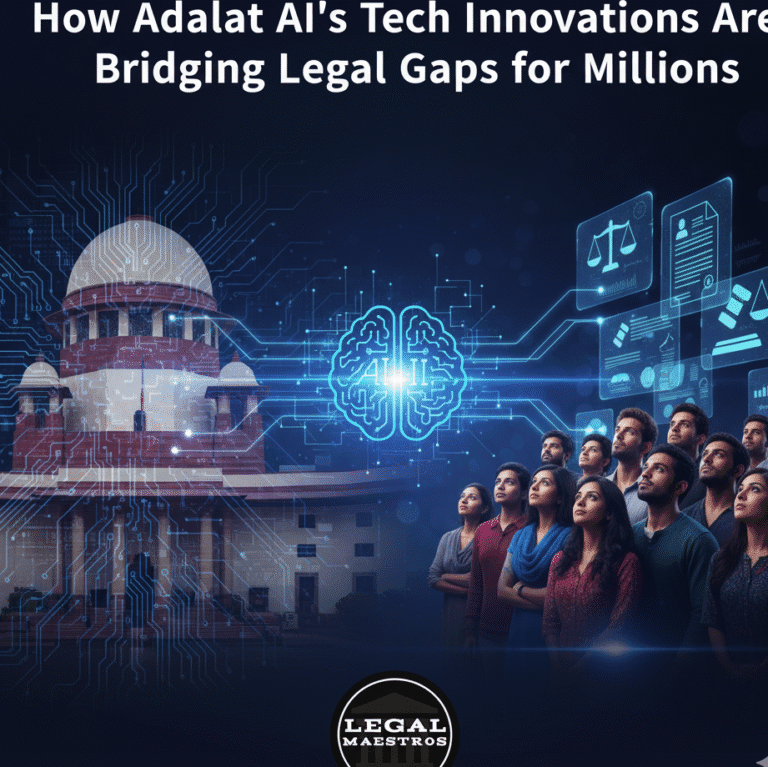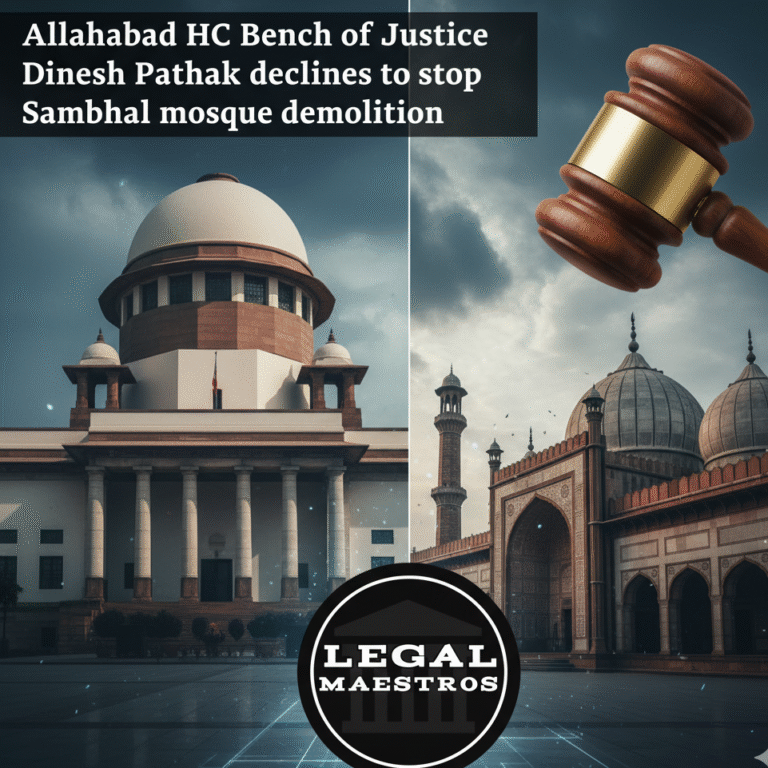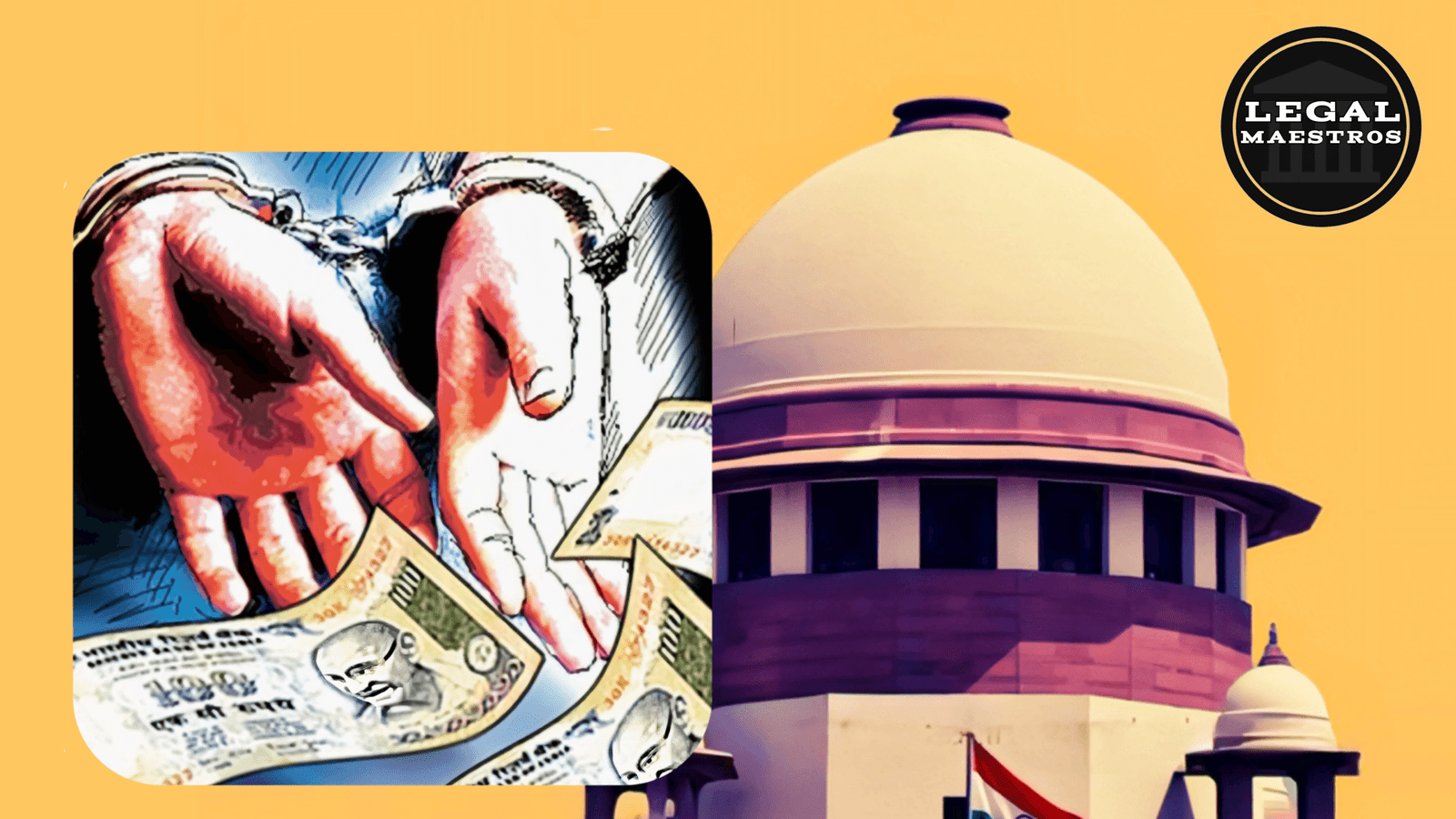
An important precedent with regards to the judiciary’s strong stand on the case of public servants who are proven to be corrupt has been made by the India Supreme Court on June 19, 2025 in the Special Leave Petition (Criminal) diary no. 4666/2025. This judgment made by a bench headed by Hon’ble Mr. Justice Sandeep Mehta and Hon’ble Mr. Justice Prasanna B. Varale carries the weight of the principle that the conviction of public servants in corruption cases must as a rule not be stayed.
The case of the state of Gujarat v Raghunath Bansropan Pandey revolved around an order, which was passed by the Gujarat High Court rendering some opinions, on the suspension of sentencing. It was explicitly mentioned that the order passed would not amount to a stay of conviction. This article will further explore the facts of the case, the provisions of the law used and the central problems covered by the Supreme Court, so as to have an in-depth comprehension of this weighty decision.
Factual scenario of the case
Raghunath Banstropan and Pandey who had been a public servant were tried forthe crimes envisaged in the Prevention of Corruption Act, 1988. He was charged namely, to have contravened Section 7 read with Section 12, and Section 13(1) (d) read with Section 13(2) of the PC Act. Such sections address the crimes associated with accepting gratification by a public servant beyond the authorized amounts of legal remuneration, and the crimes concerning criminal misconduct by a public servant respectively.
For any queries or to publish an article or post or advertisement on our platform, do call at +91 6377460764 or email us at contact@legalmaestros.com.
These charges were proved against Mr. Pandey in the trial court. He was thereafter sentenced to 3 years on charges made under Section 13(1) (d) read with Section 13 (2) of the PC Act and two years on charges made under Section 7 read with Section 12 of the PC Act.
The petitioner went to the High Court of Gujarat at Ahmedabad after he was convicted, petitioning by Criminal Miscellaneous Application to set aside his conviction. At this application, the High Court gave a very important note: an order of suspension of sentence would not be construed as a stay of the conviction per se.
The belief would be kept the same. Resenting this very finding of the High Court which refused to stay his conviction, Raghunath Bansropan Pandey, thereafter, filed a Special Leave Petition before the Supreme Court of India. The gist of his petition to the Supreme Court was to get his conviction stayed, which the High Court had expressly refused to grant.
For any queries or to publish an article or post or advertisement on our platform, do call at +91 6377460764 or email us at contact@legalmaestros.com.
Legal Provisions and Matters which were addressed by the Court
The Prevention of Corruption Act, 1988 is the most prominent legal framework in the given case. This Act has been introduced as a strategy to check corruption among public servants and to ensure more effective measures that could deal with cases of bribery and corruption.
These are the actual provisions upon which the petitioner has been found guilty of namely Section 7 (public servant taking gratification other than legal remuneration in respect of an official act) as read with Section 12 (punishment of abetment of offenses under Section 7) and Section 13(1)(d) (criminal misconduct by a public servant who, by abusing his position as a public servant, obtains for himself or for any other person any valuable thing or pecuniary advantage) as read with Section 13(2) (punishment of criminal The seriousness of the allegations has been demonstrated in the charges leveled against Mr. Pandey as there has been violation of the trust of people.
The real questions to be considered by the Supreme Court were whether there was any reasonable ground to witness interference by the High Court, or whether the observation of the suspension of sentence would not be timed-out. This portion of the order passed by the High Court was one that the petitioner sought to be overturned; in essence, a stay of his conviction was sought by him.
For any queries or to publish an article or post or advertisement on our platform, do call at +91 6377460764 or email us at contact@legalmaestros.com.
This caused attention to the more general judicial policy towards the stay of convictions, especially involving the cases of corruption involved by public servants. The Court was forced to take into account that such a stay would have a depreciating impact on the integrity of public service and on signals provided with regard to accountability.
A sentence can be suspended, and it can be stayed; a sentence-suspended conviction is like being in custody but without custody; a stayed conviction will result in not being a convicted person in the eyes of the law, and that difference might be important, particularly to a public servant as to being disqualified to hold office.
Pondering and the Decision of the Supreme Court
In the appeal to the Supreme Court, the Honourable Court only after going through the submissions of the learned counsel for the petitioner as well as perusing the impugned order reaffirmed the decision of the High Court with certainty. The Court also used its precedents on the same issue, well established. In particular, it referred to the examples of
For any queries or to publish an article or post or advertisement on our platform, do call at +91 6377460764 or email us at contact@legalmaestros.com.
K.C. Sareen against CMS of CBI, Chandigarh (2001) 6 SCC 584 and Central Bureau of Investigation, New Delhi v. M.N. Sharma (2008) 8 SCC 549
. In the above precedent, the Supreme Court had categorically stated that the courts are to be restrained and under no circumstances should they be staying convictions of public servants who have been found guilty of corruption.
The basis of adopting such a uniform treatment of various cases by courts is based on the fact that the sanctity of holding office and public service must be guarded, and there must be accountability to individuals who act against the will of the people.
For any queries or to publish an article or post or advertisement on our platform, do call at +91 6377460764 or email us at contact@legalmaestros.com.
The stay of conviction of all public servants convicted of malpractices that relate to corruption should not be allowed since it may weaken the spirit of the Prevention of Corruption Act and even the trust of the people in the justice system. The Court argued that it did not see any reason beyond its previous pronouncements for any valid reasons to take a different view. This points to the high degree of subscription to the principle of
Take resort to stare decisis in this important field of law so as to have consistency and predictability in the results of a case.
The Court finally decided that the impugned order of the High Court though not without any infirmity, does not amount to any infirmity which should warrant interference by the Supreme Court. Accordingly the special leave petition, which was of no merit, was thrown out.
This ruling proves that the judiciary will take a stringent line of action in cases of corruption especially where the perpetrators include those in the government. The rejection of the petition also implied that all related pending applications were disposed of.
For any queries or to publish an article or post or advertisement on our platform, do call at +91 6377460764 or email us at contact@legalmaestros.com.
The judgment of the Supreme Court in case of Raghunath Banstropan Pandey is a great reinforcement of the law that when a public servant is found guilty of corruption, he/she is not entitled to a stay on conviction, as a rule. The above judgment reaffirms the old judicial policy to maintain the best of integrated standards in public life.
The Court has made it clear by its recent cases of K.C. Sareen and M.N. Sharma that the judiciary is not going to interfere with such convictions easily and help in reinforcing the anti-corruption system in India. Such judicial restraint in issuing stays of conviction to corrupt public servants is very important in keeping the trust of the people in the governmental authorities and also in ensuring that justice is not done only, but it is seen to be done.
The ruling further establishes the fact that even though one might be sentenced in case he/she is successful in an appeal, the point of conviction, especially that of corruption stays unless conclusively proved otherwise, hence ensuring accountability in government service.
For any queries or to publish an article or post or advertisement on our platform, do call at +91 6377460764 or email us at contact@legalmaestros.com.

